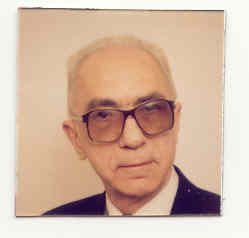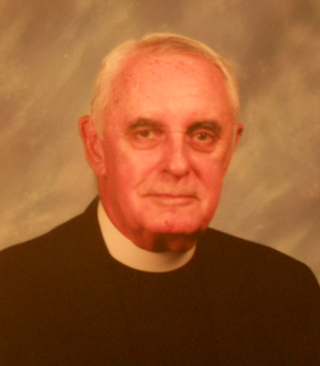Related Research Articles

Jacques Dupuis was a Belgian Jesuit priest and theologian. He spent several decades in India and taught at the Pontifical Gregorian University in Rome.
Andrew M. Greeley was an American Catholic priest, sociologist, journalist and popular novelist.

John Boswell Cobb, Jr. is an American theologian, philosopher, and environmentalist. Cobb is often regarded as the preeminent scholar in the field of process philosophy and process theology, the school of thought associated with the philosophy of Alfred North Whitehead. Cobb is the author of more than fifty books. In 2014, Cobb was elected to the prestigious American Academy of Arts and Sciences.

Jean-Luc Marion is a French philosopher and Roman Catholic theologian. Marion is a former student of Jacques Derrida whose work is informed by patristic and mystical theology, phenomenology, and modern philosophy. Much of his academic work has dealt with Descartes and phenomenologists like Martin Heidegger and Edmund Husserl, but also religion. God Without Being, for example, is concerned predominantly with an analysis of idolatry, a theme strongly linked in Marion's work with love and the gift, which is a concept also explored at length by Derrida.
The University of Chicago Divinity School is a private graduate institution at the University of Chicago dedicated to the training of academics and clergy across religious boundaries. Formed under Baptist auspices, the school today lacks any sectarian affiliations.
Gavin D'Costa is the Emeritus Professor of Catholic Theology at the University of Bristol. His academic career at Bristol began in 1993. D'Costa was appointed a visiting professor of Inter-religious Dialogue at the Pontifical University of Saint Thomas Aquinas, Rome.
Nancey Murphy is an American philosopher and theologian who is Professor of Christian Philosophy at Fuller Theological Seminary, Pasadena, CA. She received the B.A. from Creighton University in 1973, the Ph.D. from University of California, Berkeley in 1980, and the Th.D. from the Graduate Theological Union (theology) in 1987.
Catholic imagination refers to the Catholic viewpoint that God is present in the whole creation and in human beings, as seen in its sacramental system whereby material things and human beings are channels and sources of God's grace.

John Macquarrie (1919–2007) was a Scottish-born theologian, philosopher and Anglican priest. He was the author of Principles of Christian Theology (1966) and Jesus Christ in Modern Thought (1991). Timothy Bradshaw, writing in the Handbook of Anglican Theologians, described Macquarrie as "unquestionably Anglicanism's most distinguished systematic theologian in the second half of the 20th century."
David Frank Ford is an Anglican public theologian. He was the Regius Professor of Divinity at the University of Cambridge, beginning in 1991. He is now an Emeritus Regius Professor of Divinity. His research interests include political theology, ecumenical theology, Christian theologians and theologies, theology and poetry, the shaping of universities and of the field of theology and religious studies within universities, hermeneutics, and interfaith theology and relations. He is the founding director of the Cambridge Inter-Faith Programme and a co-founder of the Society for Scriptural Reasoning.
Ernan McMullin was an Irish philosopher who last served as the O’Hara Professor of Philosophy Emeritus at the University of Notre Dame. He was an internationally respected philosopher of science who has written and lectured extensively on subjects ranging from the relationship between cosmology and theology, to the role of values in understanding science, to the impact of Darwinism on Western religious thought. He is the only person to ever hold the presidency of four of the major US philosophical associations. He was an expert on the life of Galileo.

George Arthur Lindbeck was an American Lutheran theologian. He was best known as an ecumenicist and as one of the fathers of postliberal theology.

Francis Xavier Clooney is an American Jesuit priest and scholar in the teachings of Hinduism. He is currently a professor at Harvard Divinity School in Cambridge, Massachusetts.
Roger Haight is an American Jesuit theologian and former president of the Catholic Theological Society of America. He is regarded as a knowledgeable and pioneering theologian, whose experiences with censorship have led to widespread debate over how to handle controversial ideas in the Catholic church today.

David Michael O'Connell is an American prelate of the Roman Catholic Church, serving as the bishop of the Diocese of Trenton in New Jersey since 2010. He is a member of the Congregation of the Mission and a past president of the Catholic University of America.
Donald Mackenzie MacKinnon (1913–1994) was a Scottish philosopher and theologian.
Bernard McGinn is an American Roman Catholic theologian, religious historian, and scholar of spirituality. A specialist in Medieval mysticism, McGinn is widely regarded as the preeminent scholar of mysticism in the Western Christian tradition. He is best known for his comprehensive series on mysticism, The Presence of God.

Frederick Richard McManus was an American Catholic priest and academic, who served as a peritus on the liturgy at the Second Vatican Council. He presided at the first English Mass in the United States in 1964 in St. Louis, Missouri.

Werner Günter Adolf Jeanrond was Professor of Systematic Theology with special responsibility for Dogmatics at the University of Oslo. He is retired.
Leo Dennis Lefebure is an American Roman Catholic priest of the Archdiocese of Chicago, university professor, and author. He is the inaugural Matteo Ricci S. J. Chair of Theology at Georgetown University.
References
Footnotes
- ↑ Palfrey 2013, p. 1.
- 1 2 3 Palfrey 2013, p. 8.
- ↑ Palfrey 2013, pp. i, 11.
- ↑ Palfrey 2013, p. 179.
- ↑ "The American Philosophical Society Welcomes New Members for 2020". American Philosophical Society. May 5, 2020. Archived from the original on November 5, 2022.
- ↑ "David Tracy". The Gifford Lectures. August 18, 2014.
- ↑ David Tracy (Autumn 2003). "Tribute to Bernard McGinn". Criterion. 42: 41–42.
- ↑ Jason Horowitz (May 3, 2018). "How the Met Got the Vatican's Vestments". The New York Times. Archived from the original on May 11, 2018.
Bibliography
- Palfrey, Barnabas (2013). Theology as Dialogue and Fragment: Saying God with David Tracy (doctoral thesis). Oxford: University of Oxford. Retrieved December 22, 2022.